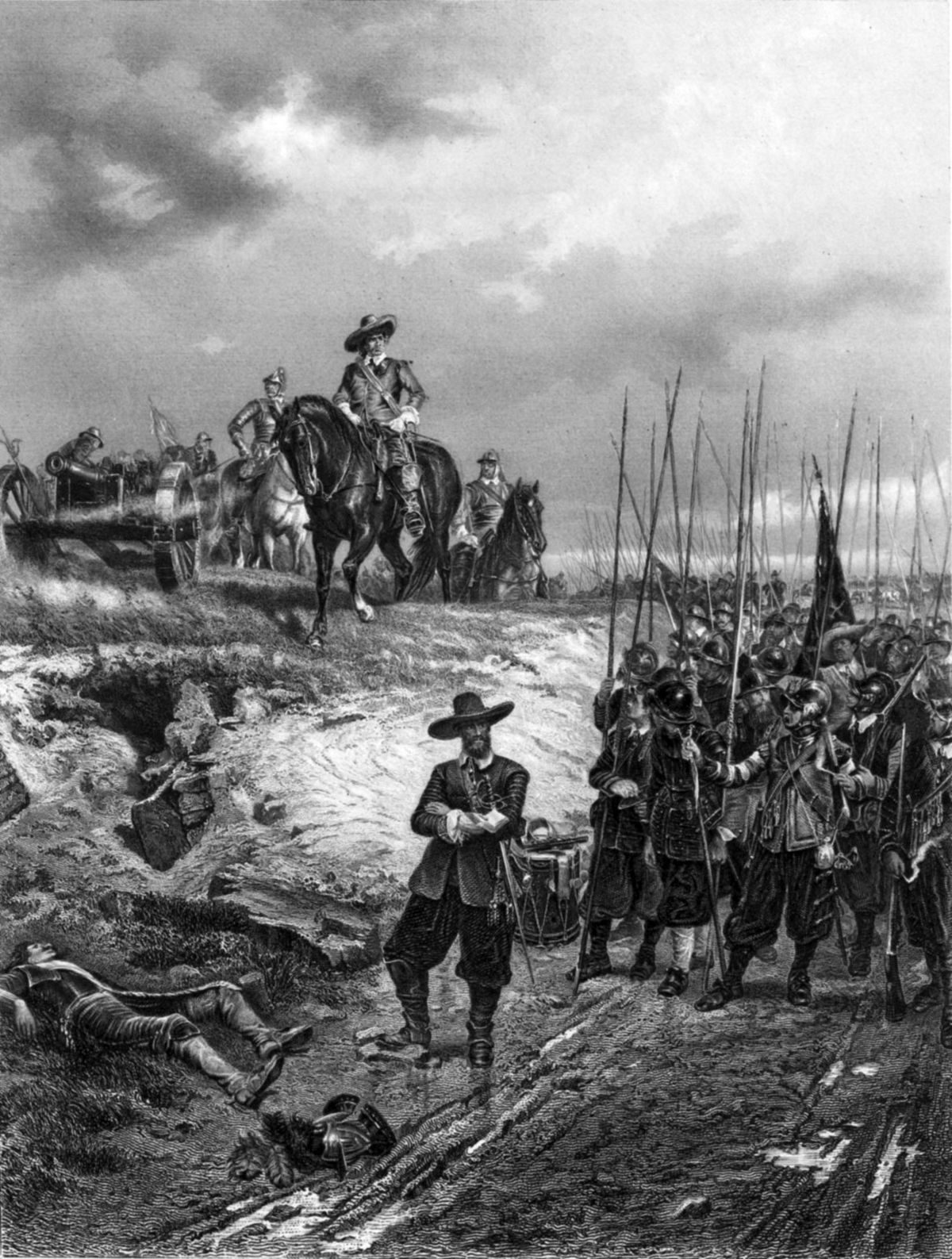
Battle of Marston Moor
Long Marston, York, England, UThe Battle of Marston Moor was fought on 2 July 1644, during the Wars of the Three Kingdoms of 1639 – 1653. The combined forces of the English Parliamentarians under Lord Fairfax and the Earl of Manchester and the Scottish Covenanters under the Earl of Leven defeated the Royalists commanded by Prince Rupert of the Rhine and the Marquess of Newcastle.
During the summer of 1644, the Covenanters and Parliamentarians had been besieging York, which was defended by the Marquess of Newcastle. Rupert had gathered an army which marched through the northwest of England, gathering reinforcements and fresh recruits on the way, and across the Pennines to relieve the city. The convergence of these forces made the ensuing battle the largest of the civil wars.
On 1 July, Rupert outmanoeuvered the Covenanters and Parliamentarians to relieve the city. The next day, he sought battle with them even though he was outnumbered. He was dissuaded from attacking immediately and during the day both sides gathered their full strength on Marston Moor, an expanse of wild meadow west of York. Towards evening, the Covenanters and Parliamentarians themselves launched a surprise attack. After a confused fight lasting two hours, Parliamentarian cavalry under Oliver Cromwell routed the Royalist cavalry from the field and, with Leven's infantry, annihilated the remaining Royalist infantry.
After their defeat the Royalists effectively abandoned Northern England, losing much of the manpower from the northern counties of England (which were strongly Royalist in sympathy) and also losing access to the European continent through the ports on the North Sea coast. Although they partially retrieved their fortunes with victories later in the year in Southern England, the loss of the north was to prove a fatal handicap the next year, when they tried unsuccessfully to link up with the Scottish Royalists under the Marquess of Montrose.
